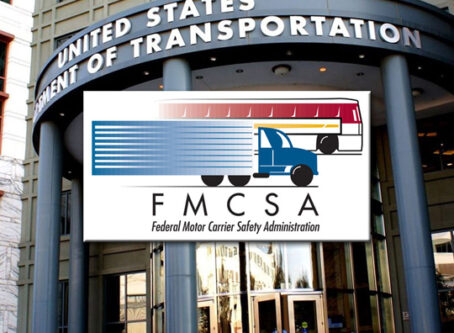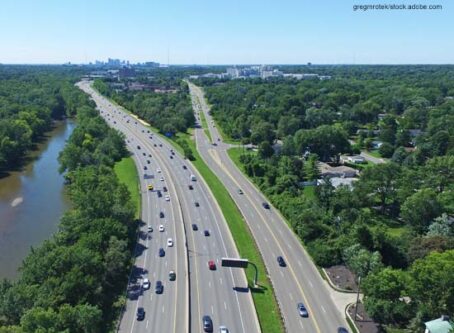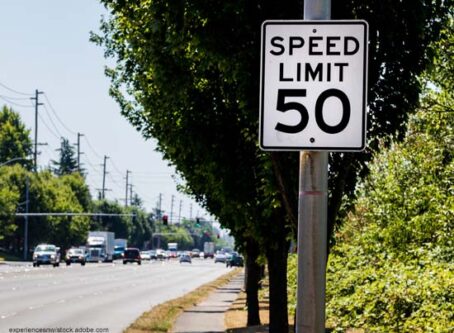Reports question need for tolls and other projects in Florida
Florida’s Multi-use Corridors of Regional Economic Significance program has released three draft task force reports, each of which questions the need for the projects, including a controversial toll in each corridor.
On Monday, Sept. 28, the Florida Department of Transportation released draft reports from M-CORES’ task force for three corridors: Southwest-Central Florida, Suncoast and Northern Turnpike. The reports address the following:
- Coordinating with FDOT on pertinent aspects of corridor analysis, including accommodation or colocation of multiple types of infrastructure.
- Evaluating the need for, and the economic, environmental, hurricane evacuation, and land use impacts of, the specific corridor.
- Considering and recommending innovative concepts to combine right of way acquisition with the acquisition of lands or easements to facilitate environmental mitigation or ecosystem, wildlife habitat, or water quality protection or restoration.
- Addressing specific issues related to specific environmental resources and land uses identified in each study area.
To pay for the projects, a toll road in each of the three corridors is proposed.
Although details in each report vary, they all agreed on at least two things. First, no report could commit to fully supporting M-CORES projects. Second, the reports recommend that FDOT consider a “no build” option instead. All three reports included the following statement:
The Task Force did not reach a conclusion based on the information available at this time that there is a specific need for a completely new greenfield corridor on land through the study area to achieve the statutory purpose. The report expresses a preference for improvement or expansion of existing major highway corridors or existing major linear utility corridors. The Task Force acknowledged the process for FDOT to consider a “no build” alternative in future project development activities until a final recommendation about each specific project is made.
The draft M-CORES reports are a setback for lawmakers who support tolls on the corridors.
During open house meetings throughout the year, thousands of public comments were submitted. Topics of concerns included environment, equity impacts of tolling, quality of life and economic opportunity.
Several groups are opposed to M-CORES. On its website, 1000 Friends of Florida expresses its opposition to the program.
“During the 2019 Florida Legislative Session, 1000 Friends of Florida opposed the bill that authorized the M-CORES program, Senate Bill 7068, because we believe building new highways in the designated corridors will put at-risk rural communities, vulnerable lands and waters, and wildlife – not just from the highways, but also from the sprawl they would generate,” the 501(c)(3) nonprofit membership organization states. “We also believe there are higher priorities for investing limited dollars to meet Florida’s most pressing transportation needs.”
Florida Conservation Voters, a group protecting the waters and conservation lands, has also been vocally opposed to the toll project. Lindsay Cross, Florida Conservation Voters’ government relations director, called the process “rushed,” saying M-CORES needs more data and meaningful public input.
“Given the overwhelming public opposition to this project, we expect the outcry against the toll roads to only get louder as more Floridians – faced with the impacts of ongoing global health and economic crises – understand this gross misuse of taxpayer dollars,” Cross said in a statement. “The choice is clear: No Build is the only viable option to protect what is essential to Floridians: clean water, productive agriculture, wildlife habitat, rural quality of life, and the sound investment of state resources.”
Despite opposition from Floridians and reports questioning the need, Senate President Bill Galvano doubled down on the projects.
In a statement, Galvano said stopping the projects could have economic consequences to rural communities as the state recovers from the damages caused by the pandemic. One area the task force had to consider was high-speed internet access in rural communities.
FDOT is accepting public comments, which must be received by Oct. 14. Those comments, along with the draft reports, will be discussed during an October task force meeting. At that meeting, the task force will finalize recommendations for each corridor. The final report is due by Nov. 15. FDOT will use that final report during its study phases.
To submit comments, visit FloridaMCORES.com and fill out the online form. Those forms will need to be downloaded and mailed to 605 Suwannee St., MS 54, Tallahassee, FL 32399-0450. LL









